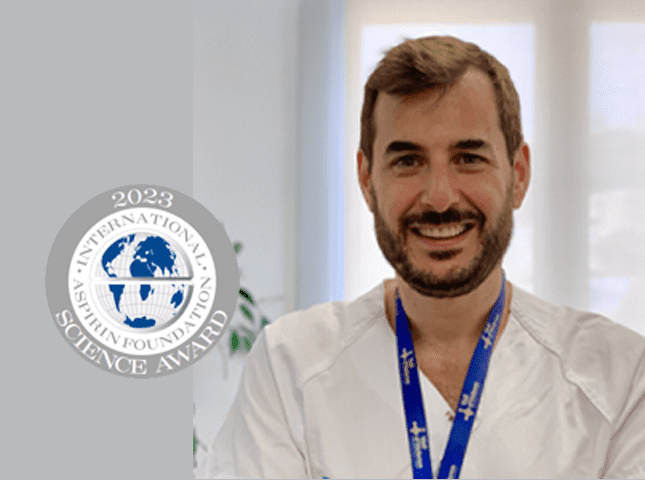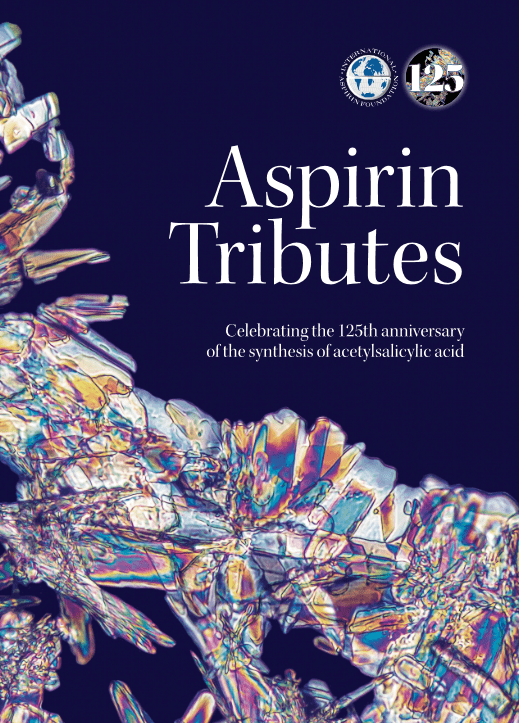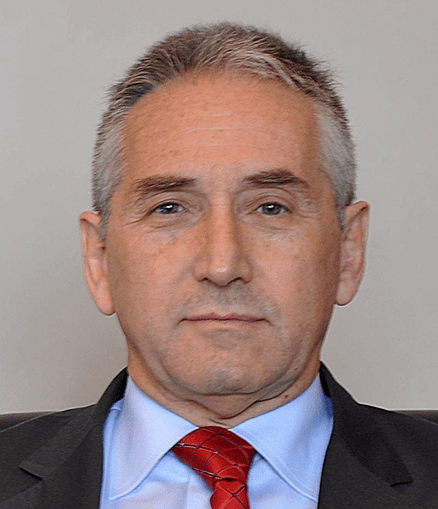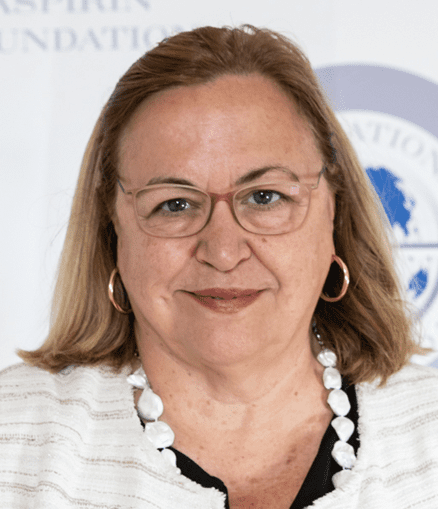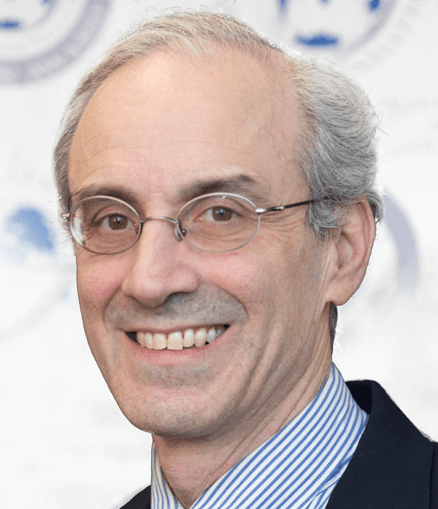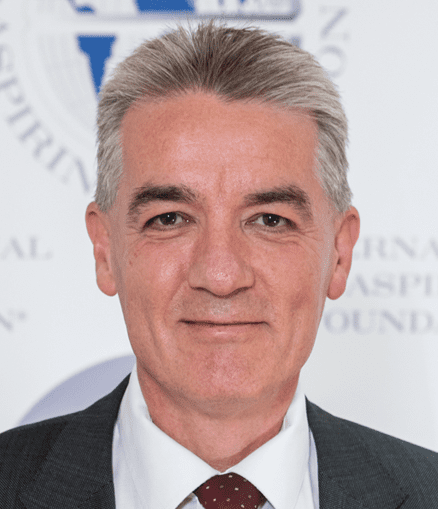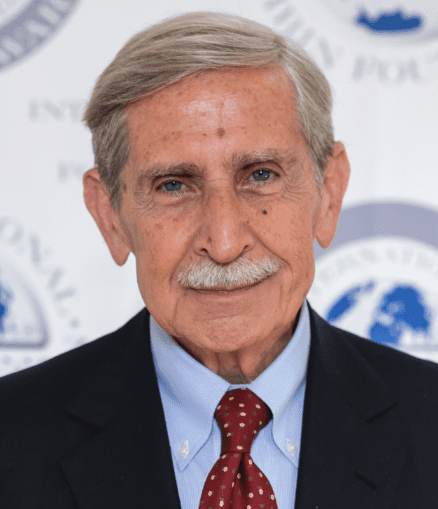Follow this link to download a pdf copy of the press release
- Aspirin use appears to improve survival post diagnosis in colorectal cancers with certain genetic mutations
- Immune check point inhibitors against the PDCD1 (programmed cell death 1, PD-1) to CD274 (PDCD1 ligand, PD-1) axis have shown exciting clinical benefits in the treatment of refractory cancer.
- Aspirin appears to have a synergistic effect with new immune check point blockade therapies.
The U.S. Food and Drug Administration (FDA) has approved the anti PDCD1 (PD-1) antibody pembrolizumab for the treatment of solid tumours that have high-level microsatellite instability (MSI) or mismatch repair deficiency. This has been seen as an exciting development in cancer therapy as it is the first anticancer agent license based on a tumour biomarker rather than the actual primary cancer site.
High- level MSI is often present in colorectal cancer which may be why immune check point blockade has helped to improve survival in this cancer type. Unfortunately not all MSI-high colorectal cancers respond to immunotherapy. There are many complexities to individual colorectal cancers which are influenced by lifestyle factors, the microbiome and host cells which are thought to result in unique genetic and epigenetic aberrations and a distinct microenvironment. Predictive factors for immune response are therefore required.
Aspirin may reduce colorectal cancer mortality by inhibition of PTGS2 and prostaglandin E2 (PGE2) synthesis. In addition aspirin appears to have immune enhancing effects on the adaptive and innate immune response
These effects seen with aspirin appear to be influenced by the genetic makeup of the cancer. Colorectal cancer with lower-level CD274 (PD-L1) expression appear to benefit from better post diagnosis aspirin use than those with higher-level CD274 expression.
Activation of the CD274-PDCD1 immune checkpoint pathway may result in resistance to aspirin therapy in colorectal cancer treatment. This may be overcome with the use of immune checkpoint blockade therapies. Immune check point therapy and aspirin may work in a synergistic manner to control the progression of colorectal cancer.
References
For further information see: Hamada T, Giannakis M and Ogino S Aspirin in the era of immunotherapy Oncotarget. 2017 Sept 26: 8(43):73370-73371.
References1. Rothwell PM, Algra A, Chen Z, Diener HC, Norrving B, Mehta Z. Effects of aspirin on risk and severity of early recurrent strokeafter transient ischaemic attack and ischaemic stroke: time-course analysis of randomised trials. Lancet 2016; 18th May online.Recently published science of interestabout aspirin: aspirin mechanismIn an Opinion article in press at Nature Reviews Cancer, we review the weight of the evidence supporting aspirin’s chemopreventive potential and highlight advances in our understanding of aspirin’s mechanisms of action. We challenge the notionthat aspirin prevents cancer through a single, dominant pathway and propose an integrative multi-pathway model for itsmode of action. We highlight how these pathways can be leveraged to develop mechanistic biomarkers for personalised riskstratification. Such biomarkers may then be translated clinically in a precision medicine approach critical to the future of aspirinchemoprevention.
1. Gaciong Z. The real dimension of analgesic activity ofaspirin. Thromb Res. 2003;110(5-6):361-4.
2. Seymour RA, Hawkesford JE, Sykes J, Stillings M, HillCM. An investigation into the comparative efficacy of soluble aspirin and solidparacetamol in postoperative pain after third molar surgery. Br Dent J.2003;194(3):153- 7; discussion 49.
3. LamplC, Voelker M, Steiner TJ. Aspirin is first-line treatment for migraine andepisodic tension-type headache regardless of headache intensity. Headache.2012;52(1):48-56.
4. LecchiM, D’Alonzo L, Negro A, Martelletti P. Pharmacokinetics and safety of a newaspirin formulation for the acute treatment of primary headaches. Expert OpinDrug Metab Toxicol. 2014;10(10):1381-95.
5. Eccles R, Loose I, Jawad M, Nyman L. Effects ofacetylsalicylic acid on sore throat pain and other pain symptoms associatedwith acute upper respiratory tract infection. Pain Med. 2003;4(2):118-24.
6. Bachert C, Chuchalin AG, Eisebitt R, Netayzhenko VZ,Voelker M. Aspirin compared with acetaminophen in the treatment of fever andother symptoms of upper respiratory tract infection in adults: a multicenter,randomized, double-blind, double-dummy, placebo-controlled, parallel-group,single-dose, 6-hour dose-ranging
study. Clin Ther. 2005;27(7):993-1003.
7. LeonardsJR. The influence of solubility on the rate of gastrointestinal absorption ofaspirin. Clin Pharmacol Ther. 1963;4:476-9.
8. Davison C. Salicylate metabolism in man. Ann N Y AcadSci. 1971;179:249-68.
9. Fonseca MD, Cunha FQ, Kashfi K, Cunha TM. NOSH-aspirin(NBS-1120), a dual nitric oxide and hydrogen sulfide-releasing hybrid, reducesinflammatory pain. Pharmacol Res Perspect. 2015;3(3):e00133.
1. Final Recommendation Statement: Aspirin Use toPrevent Cardiovascular Disease and Colorectal Cancer: Preventive Medication.U.S. Preventive Services Task Force. April 2016.
2. Bibbins-DomingoK; U.S. Preventive Services Task Force. Aspirin use for the primary preventionof cardiovascular disease and colorectal cancer: U.S. Preventive Services TaskForce recommendation statement. Ann Intern Med. 2016;164:836-45. doi:10.7326/M16-0577
3. U.S.Preventive Services Task Force. Aspirin for the prevention of cardiovasculardisease: recommendation statement. AnnIntern Med 2009;150:396-404.
4. DehmerSP, Maciosek MV, Flottemesch TJ, LaFrance AB, Whitlock EP. Aspirin for thePrimary Prevention of Cardiovascular Disease and Colorectal Cancer: A DecisionAnalysis for the U.S. Preventive Services Task Force. Ann Intern Med. 2016 Jun21;164(12):777-86.
5. EA,Whitlock EP. Aspirin for the Primary Prevention of Cardiovascular Events: ASystematic Evidence Review for the U.S. Preventive Services Task Force.Evidence Synthesis No. 131. AHRQ Publication No.13-05195-EF-1. Rockville, MD:Agency for Healthcare Research and Quality; 2015. [PMID: 26491760]
6. Chubak J, Kamineni A, Buist DSM, Anderson ML, WhitlockEP. Aspirin Use for the Prevention of Colorectal Cancer: An Updated SystematicEvidence Review for the U.S. Preventive Services Task Force. Evidence SynthesisNo. 133. AHRQ Publication No. 15-05228-EF-1. Rockville, MD: Agency forHealthcare Research and Quality; 2015. [PMID: 26491758]
7. Whitlock EP, Williams SB, Burda BU, Feightner A, Beil T.Aspirin Use in Adults: Cancer, All-Cause Mortality and Harms. A SystematicEvidence Review for the U.S. Preventive Services Task Force. Evidence SynthesisNo. 132. AHRQ Publication No. 13-05193-EF-1.Rockville, MD: Agency forHealthcare Research and Quality; 2015.[PMID: 26491756]
8. Guirguis-BlakeJM, Evans CV, Senger CA, O’Connor EA, Whitlock EP. Aspirin for the primary preventionof cardiovascular events: a systematic evidence review for the U.S. PreventiveServices Task Force. Ann Intern Med. 2016;164:804-13. doi:10.7326/M15-2113
9. ChubakJ, Whitlock EP, Williams SB, Kamineni A, Burda BU, Buist DSM, et al. Aspirinfor the prevention of cancer incidence and mortality: systematic evidencereviews for the U.S. Preventive Services Task Force. Ann Intern Med.2016;164:814-25. doi:10.7326 /M15-2117
10. WhitlockEP, Burda BU, Williams SB, Guirguis-Blake JM, Evans CV. Bleeding risks withaspirin use for primary prevention in adults: a systematic review for the U.S.Preventive Services Task Force. Ann Intern Med. 2016;164:826-35.doi:10.7326/M15-2112
Table 1 Studies examining PIK3CA mutation, aspirin use and colorectalcancer outcomes.
Study | % PIK3CA Mutant | Endpoint | PIK3CA Mutant | PIK3CAWild-Type | ||||
No aspirin | Aspirin | HR (p value) | No aspirin | Aspirin | HR (p value) | |||
Nurses’ Health Studyft Health Professionals Follow-up Study (Liao 2012) | 16.7% | OS | 95 | 66 | 0.54 (0.01) | 466 | 337 | 0.94 (0.96) |
CSS | – | – | 0.18(<0.001) | – | – | 0.96 (0.76) | ||
VICTOR trial (Domingo 2013) | 11.6% | OS | 90 | 14 | 0.29 (0.19) | 681 | 111 | 0.95 (0.26) |
RFS | – | – | 0.11 (0.027) | – | – | 0.94 (0.79) | ||
Moffitt Cancer Centre & Royal MelbourneHospital (Kothari 201S) | 12.4% | OS | 136 | 49 | 0.96 (0.86) | – | – | – |
CSS | – | – | 0.60 (0.14) | – | – | – | ||
Eindhoven Cancer Registry (Reimen 2014) | 15.8% | OS | 73 | 27 | 0.73* (0.4) | 348 | 147 | 0.55(<0.001) |
Characteristic | No. of Patients | No. of Deaths | Univariate RR(95% CI) | P Value“ | Adjusted RR (95% Ci)c | P Value“ |
HLA class Iantigen |
|
|
|
|
|
|
Loss |
|
|
|
|
|
|
No aspirin use | 263 | 123 | 1 (Reference) | .74 | 1 (Reference) | .91 |
Aspirin use | 57 | 26 | 1.08(0.70-1.64) | 1.03(0.66-1.61) | ||
Expression |
|
|
|
|
|
|
No aspirin use | 521 | 257 | 1 (Reference) | .003 | 1 (Reference) | <.001 |
Aspirin use | 122 | 42 | 0.61(0.44-0.85) | 0.53(0.38-0.74) |
1. Langley RE, Burdett S, Tierney JF, Cafferty F,Parmar MK, Venning G. Aspirin and cancer: has aspirin been overlooked as anadjuvant therapy? Br J Cancer. 2011; 105(8): 1107-13.
2. Rothwell PM, Wilson M, Elwin CE, Norrving B, Algra A,Warlow CP, et al. Long-term effect of aspirin on colorectal cancer incidenceand mortality: 20-year follow-up of five randomised trials. Lancet. 2010;376(9754): 1741-50.
3. Rothwell PM, Fowkes FG, Belch JF, Ogawa H,Warlow CP, Meade TW. Effect of daily aspirin on long-term risk of death due tocancer: analysis of individual patient data from randomised trials. Lancet.2011; 377(9759): 31-41.
4. RothwellPM, Price JF, Fowkes FG, Zanchetti A, Roncaglioni MC, Tognoni G, et al.Short-term effects of daily aspirin on cancer incidence, mortality, andnon-vascular death: analysis of the time course of risks and benefits in 51randomised controlled trials. Lancet. 2012; 379(9826): 1602-12.
5. Rothwell PM, Wilson M, Price JF, Belch JF, MeadeTW, Mehta Z. Effect of daily aspirin on risk of cancer metastasis: a study ofincident cancers during randomised controlled trials. Lancet. 2012.
6. Coyle C, Cafferty FH and Langley RE. Aspirin andColorectal Cancer Prevention – Is it for everyone? Curr Colorectal Cancer Rep(2016) 12:27–34
7. Reimers MS, Bastiaannet E, Langley RE, van Eijk R, vanVlierberghe RL, Lemmens VE, et al. Expression of HLA Class-I Antigen, AspirinUse, and Survival After a Diagnosis of Colon Cancer. JAMA Intern Med, 2014174(5) 732-739.
Current clinical trials of aspirin in Italy include ACCEPT-D (Aspirin and Simvastatin Combination for Cardiovascular EventsPrevention Trial in Diabetes), a primary prevention trial coordinated by Dr. Nicolucci at the Mario Negri Institute in Milan,and ASAMET, a randomized, 2×2 biomarker prevention trial of low-dose aspirin and metformin in colon cancer patientscoordinated by Dr. De Censi at the E.O. Ospedali Galliera in Genova. Moreover, investigators in Rome, Chieti, Verona, Sienaand Bari, coordinated by Prof. Paola Patrignani, are collaborating in investigating the role of platelet activation in intestinaltumorigenesis. They will test the hypothesis that inhibition of platelet activation may explain the efficacy of low-dose aspirin as achemopreventive agent.Besides the references quoted in the text, the following may be of interest:Patrono C (2015) The multifaceted clinical readouts of platelet inhibition by low-dose aspirin. J Am Coll Cardiol 66:74-85.Scavone M, Femia EA, Caroppo V, Cattaneo M. Inhibition of the platelet P2Y12 receptor for adenosine diphosphate does notimpair the capacity of platelet to synthesize thromboxane A2.Eur Heart J. 2015 Oct 29. pii: ehv551. [Epub ahead of print]Chan AT, Ladabaum U. Where do we stand with aspirin for the prevention of colorectal cancer? The USPTF recommendations.Gastroenterology. 2015 Nov 18. pii: S0016-5085(15)01665-0. doi: 10.1053 / j.gastro.2015.11.018. [Epub ahead of print]ever forany consequences arising from any reliance placed on such information, views, opinions and other materials in lieu of professional medical advice.For further information please contactInternational Aspirin FoundationBower House34 Bower Mount RoadMaidstoneKent ME16 8AUTel: +44(0) 1622 320118Fax: +44(0) 1436 840194Email: aspirin@aspirin-foundation.comwww.aspirin-foundation.com

